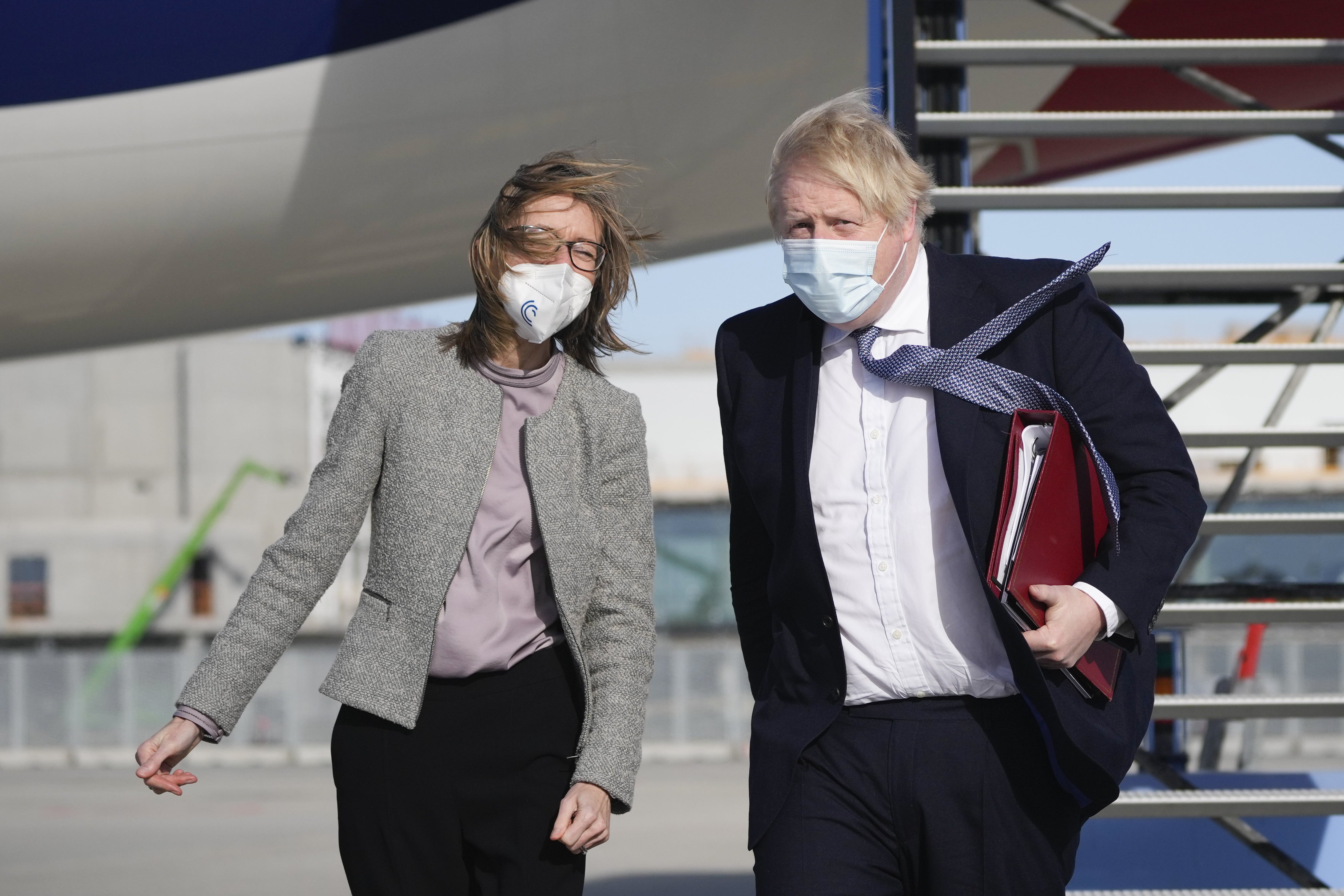Still time to avert ‘catastrophic act of aggression’ by Russia, says Johnson
Boris Johnson said the West must show solidarity against Russian president Vladimir Putin if diplomacy is to prevail.

The Prime Minister has jetted to Munich where he is set to urge allies to show solidarity in a bid to prevent a “catastrophic act of aggression” by Russia against Ukraine.
Speaking before his arrival at the security conference in Germany, Boris Johnson said the “disaster” of a war in eastern Europe could still be avoided by diplomatic means if the West speaks with “one voice”.
World leaders are convening in Bavaria on Saturday as fears grow that instability in Russian separatist-held areas of Ukraine could spark an invasion by Moscow forces.
A separatist leader in eastern Ukraine has ordered a full military mobilisation amid a spike in violence in the war-torn region of Donetsk – including the shelling of a humanitarian convoy – that the West is concerned could be used as a pretext for incursion by Russian President Vladimir Putin.
US President Joe Biden used an address on Friday to warn that the US has reason to believe Russian forces “intend to attack” Ukraine in the coming days, including targeting the capital Kyiv – a city with a population of 2.8 million people.
Mr Biden told a White House press briefing on Friday he was “convinced” Mr Putin had “made the decision” to move his military across the border, having spent weeks saying he thought the Russian leader was undecided.
Attention on Saturday will turn to Germany, with Mr Johnson among those set to make an address to the Munich Security Conference before meeting with counterparts to discuss the tensions on the Ukraine border, where it is reported 150,000 Russian troops are amassed.
Upon his arrival in Munich, he was greeted by British ambassador Jill Gallard.
In a video that appeared to have been recorded during the flight to the summit, the Prime Minister said: “I’ll be urging unity in the face of potential Russian aggression in Ukraine and that unity is absolutely vital if we’re going to deter what I think would be an absolutely catastrophic act of aggression by Vladimir Putin.
“My message today is that there is still time to avert that disaster, that diplomacy can prevail, and that’s the message I’ll be taking to Munich.”
Melinda Simmons, the British ambassador to Ukraine, has said she hopes to be working in the Ukrainian capital again “as soon as possible” after it was announced the UK’s embassy was being “temporarily” relocated to the west of the country, near the border of Poland.
She tweeted: “Getting started in Lviv today. And intending to be back in Kyiv as soon as is possible.”
The decision to shift Britain’s diplomatic effort away from the capital – which lies close to the border with Russian ally Belarus – came only hours before the US signalled Kyiv could be in the Kremlin’s firing line.
The Russian defence ministry has announced massive nuclear drills to flex its military muscle on Saturday, and Mr Putin – who is scheduled to watch the exercises – has pledged to protect Russia’s national interests against what it sees as encroaching Western threats.
Britain and the US, along with a host of western allies, have been united in promising punishing sanctions should Moscow order troops across the border.
Meanwhile, an undercurrent of unrest has continued to grow in the east of Ukraine, where government forces have been fighting pro-Russia rebels since 2014 in a conflict that has killed some 14,000 people.
The long-simmering separatist conflict could provide the spark for a broader attack, with London and Washington raising the prospect of Russia using a “false flag” operation to give it cover for an offensive.
Denis Pushilin, the head of the pro-Russian separatist government in the Donetsk region, released a statement on Saturday announcing a full troop mobilisation and urging reservists to show up at military enlistment offices.
The announcement came as a mass evacuation of women, children and the elderly from the rebel-held territories in the Donetsk and Luhansk regions to neighbouring Russia got under way in what some commentators speculated was part of Moscow’s efforts to paint Ukraine as the aggressor instead.
Friday marked a day of rising violence that included a humanitarian convoy hit by shelling and a car bombing in the eastern rebel-held city of Donetsk outside the main government building, while two explosions occurred in rebelled-controlled Luhansk.
Bookmark popover
Removed from bookmarks